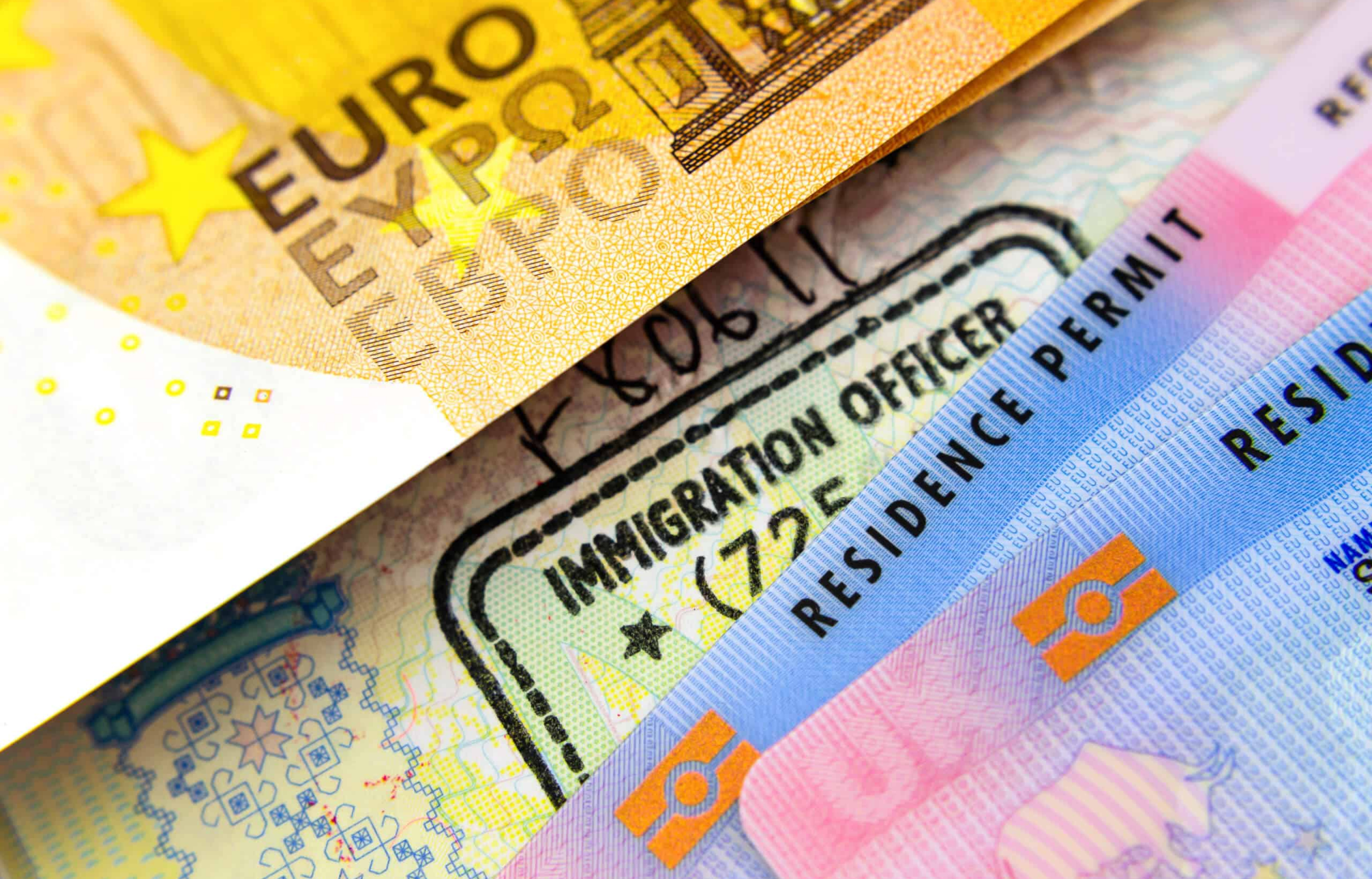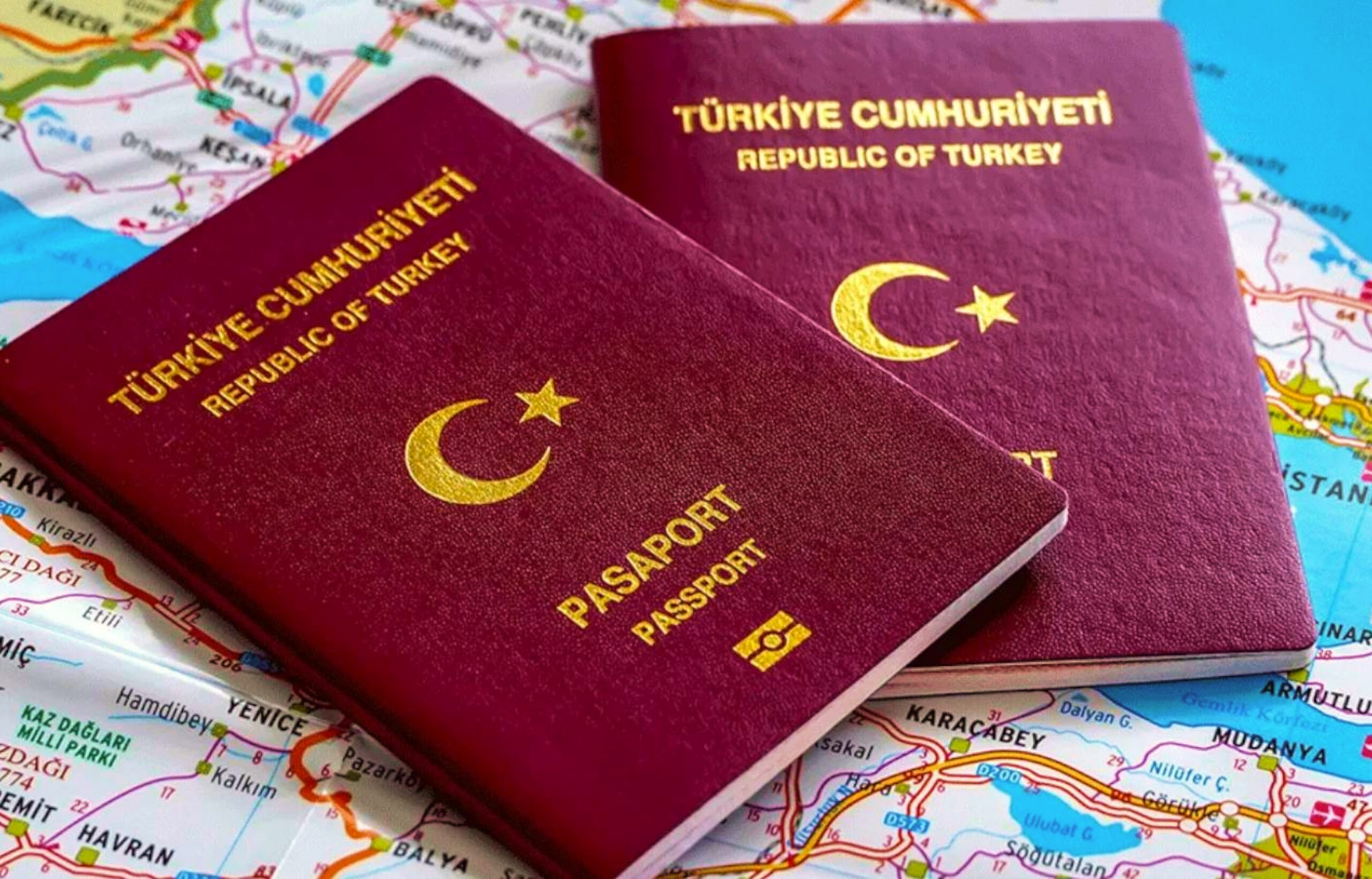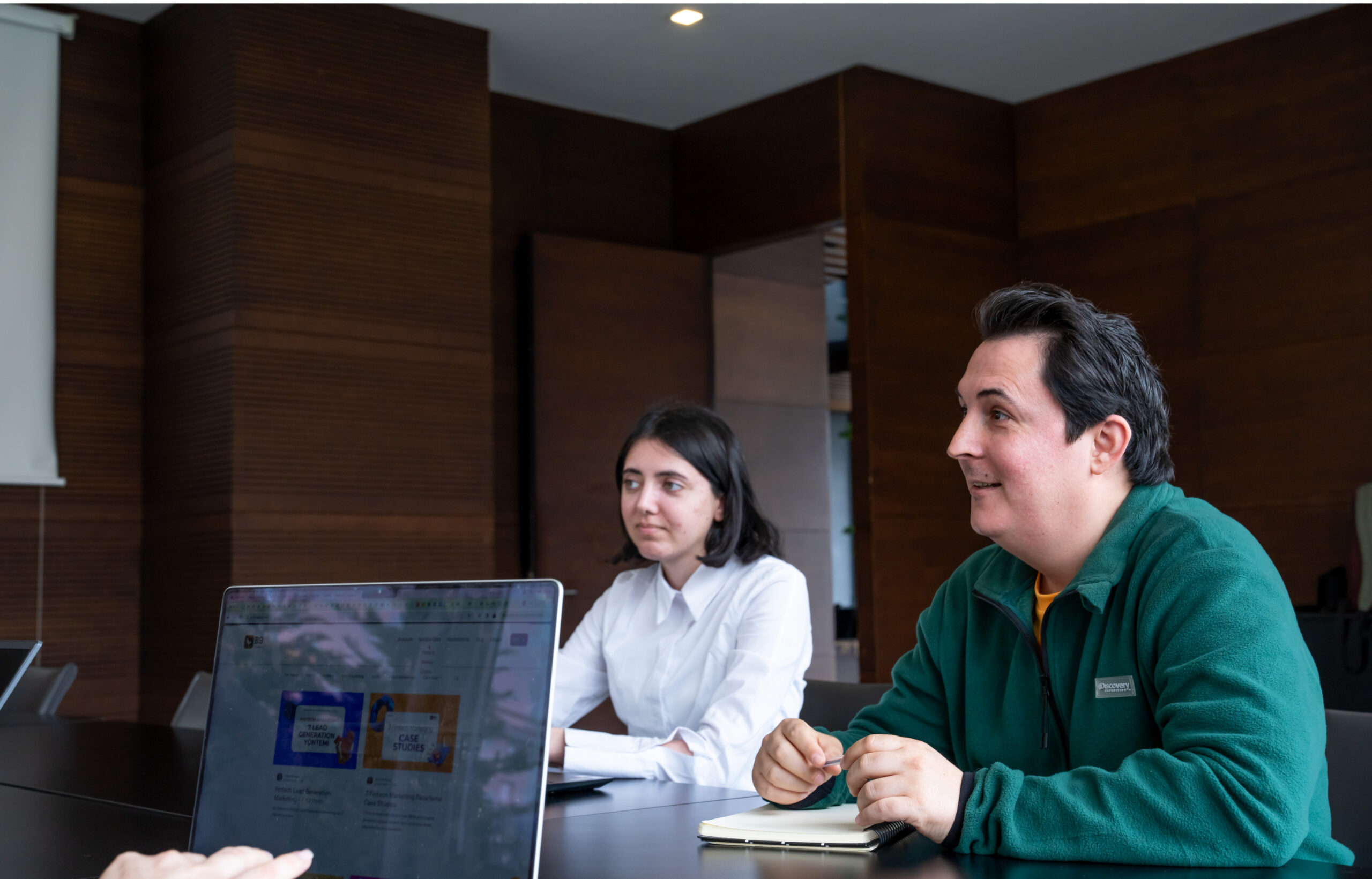Navigating Turkish Residence Permit Types

Securing a Turkish residence permit offers a wide range of benefits, from experiencing a rich culture to potentially starting a business. Understanding the different permit types is the essential first step. Choosing the right permit is crucial for a streamlined application process. This section explains the various Turkish residence permit categories and helps you determine the one that best fits your individual situation.
Understanding The Permit Landscape
The Turkish government provides several residence permits designed for different purposes. These permits are grouped into broad categories. Short-term residence permits are for individuals planning briefer stays, such as tourists, individuals seeking medical treatment, or those exploring business ventures. Family residence permits enable spouses and children of Turkish citizens or residence permit holders to live legally in Turkey. For those pursuing education, student residence permits provide the necessary legal structure for their studies. Humanitarian residence permits are provided to those seeking refuge or protection.
Short-Term Vs. Long-Term Residence Permits
A key difference between Turkish residence permits lies in their length. Short-term permits usually last for a maximum of two years. However, in certain situations, like investments meeting specific criteria determined by the Council of Ministers, a five-year short-term permit can be granted. This five-year permit can also be a pathway to long-term residency or even Turkish citizenship. Long-term residence permits, conversely, are granted indefinitely, eliminating the need for renewals.
Statistical Overview of Residence Permits
The number of foreign nationals living in Turkey reflects its growing popularity. As of December 31, 2021, 1,314,181 foreign nationals held residence permits in Turkey, which includes humanitarian residence holders. Of these, 965,878 were short-term residence permits, showing Turkey’s attractiveness for shorter visits. Student and family residence permits also comprised a significant portion, with 117,217 and 89,829 holders, respectively. This data illustrates the diverse international community present in Turkey. Find more detailed statistics here: https://dtm.iom.int/sites/g/files/tmzbdl1461/files/reports/Turkey_MPMonitoring_Annual_Report_2021.pdf
Choosing The Right Path
Navigating these permit categories may seem complex, but carefully considering your individual circumstances will help you choose the correct permit. Each permit type has its specific requirements. Understanding these specifics is essential before applying. The following sections provide further detail about each permit type, giving you the necessary information to make informed choices and successfully obtain your Turkish residence permit.
Mastering Documentation Requirements
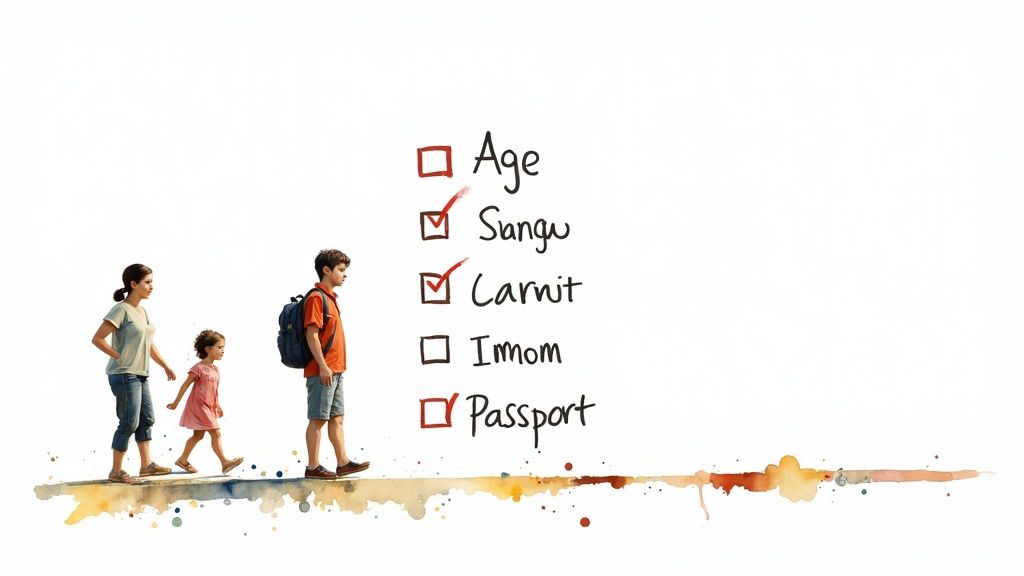
Successfully obtaining a Turkish residence permit relies heavily on submitting the correct documentation. This section serves as a guide to the necessary paperwork, formatting specifics, and potential problems to avoid, ensuring a smooth application process.
Essential Documents: A Checklist For Success
While the exact documents required for a Turkish residence permit depend on the permit type, some are universally needed. These include a completed residence permit application form, a passport photocopy (valid beyond your intended stay), and four biometric photographs. You must also provide proof of sufficient financial resources for your stay, typically demonstrated with bank statements showing a consistent income or a substantial balance. A valid health insurance policy is also mandatory.
Proof Of Accommodation And Financial Stability: Meeting The Standards
Proof of accommodation is crucial for most permit types. Acceptable documents include a title deed (if you own property), a long-term rental contract registered with the Tapu (Turkish Land Registry and Cadastre), or a notarized letter from a host confirming your living arrangements. Financial evidence, generally in the form of bank statements, must show a sufficient balance or income to support yourself. The required amount varies by permit type, with short-term permits sometimes requiring a balance equivalent to several months of living expenses, and long-term permits often needing proof of regular income.
Navigating Health Insurance And Document Legalization
Acceptable health insurance must provide comprehensive coverage meeting specific minimum requirements. These thresholds are often updated annually, so verifying the latest guidelines is important. Some provinces may prefer local insurance providers over international ones. Regarding document legalization, some documents need notarization, while others, especially those issued outside Turkey, require an apostille certification. This is crucial for ensuring your documents are legally recognized, with educational diplomas often requiring an apostille.
To help illustrate the varying documentation requirements, the table below summarizes the key documents needed for each permit type.
Documentation Requirements by Permit Type
| Document Type | Short-term Permit | Student Permit | Family Permit | Humanitarian Permit |
|---|---|---|---|---|
| Application Form | Required | Required | Required | Required |
| Passport Copy | Required | Required | Required | Required |
| Biometric Photos | Required | Required | Required | Required |
| Proof of Funds | Required | Required | Required | May vary |
| Health Insurance | Required | Required | Required | May vary |
| Proof of Accommodation | Often Required | Often Required | Often Required | May vary |
| Acceptance Letter (from institution) | Not Required | Required | Not Required | Not Required |
| Family Ties Documents (e.g., marriage certificate) | Not Required | Not Required | Required | May vary |
This table highlights the core documentation similarities and differences across permit types. Note the additional requirements for student and family permits, such as acceptance letters and family ties documentation, respectively. Humanitarian permits may have specific requirements depending on individual circumstances.
Addressing Specific Documentation Scenarios: Examples And Solutions
Different situations may present unique documentation challenges. For a family residence permit, you’ll need additional documents like marriage or birth certificates, potentially translated into Turkish and notarized. Student permits require acceptance documentation from a recognized Turkish educational institution. Understanding these nuances and preparing in advance will significantly improve your application’s chances of success.
Navigating the Application Process With Confidence
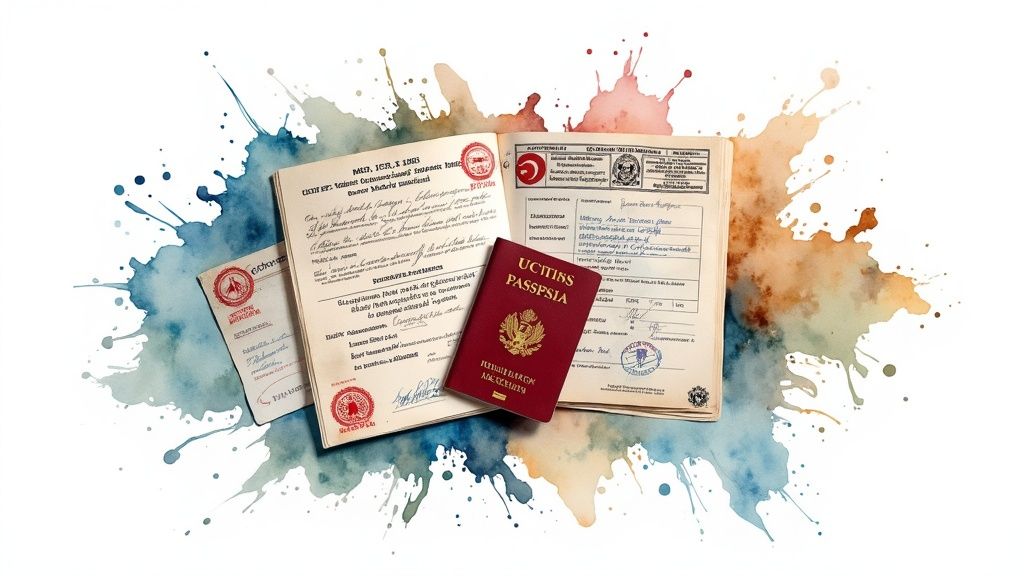
Having reviewed the required documentation, let’s explore the Turkish residence permit application process. This critical phase demands meticulous attention, as even small errors can cause substantial delays. This guide will walk you through each step, providing practical advice based on expert insights and successful applications.
Initiating Your Application: The E-Residence System
The first step is creating an account on the e-residence system of the Turkish Ministry of Foreign Affairs. This online platform will be your primary tool throughout the entire process. Accuracy is paramount. Ensure all information aligns perfectly with your official documents. Any discrepancies can create complications later, so double-check everything before submitting your application.
Securing Your Appointment: Timing and Location Strategies
Once your online application is complete, schedule an appointment at your local Provincial Directorate of Migration Management. Strategic timing can be advantageous. Certain days or locations may offer quicker processing. For instance, booking an early morning appointment or one during off-peak hours could save valuable time.
The Interview: Preparation and Presentation
The in-person interview is a vital part of the process. Thorough preparation is key to a successful outcome. Familiarize yourself with common questions, such as your reasons for applying, the intended duration of your stay, and your financial situation. Present yourself confidently and clearly. This includes having your original documents well-organized and bringing extra copies as a precaution.
Tracking Your Application and Handling Additional Requests
After the interview, the waiting period begins. You can monitor your application status through the e-residence system. Be ready to promptly respond to any requests for supplementary documentation. The Turkish residence permit process adheres to strict regulations under the Law on Foreigners and International Protection No. 6458. Applicants must apply via the e-residence system and fulfill specific requirements, culminating in an appointment at the provincial or district migration management directorate. As of May 2024, the Directorate General of Migration Management (DGMM) reported 1,125,623 residence permit holders across various categories. Learn more: General Information. Proactive responses demonstrate your commitment to adhering to Turkish regulations.
Navigating Provincial Variations
While the fundamental process remains consistent, individual provincial offices may have specific timelines and procedures. This necessitates flexibility and patience. Staying informed about potential regional differences is essential for adequate preparation. Knowing what to expect at each step, from the initial online application to the final decision, allows you to approach the process confidently and increases your chances of securing your Turkish residence permit.
Understanding Regional Variations That Impact Success

While the overall framework for Turkish residence permit requirements remains consistent, the decentralized system introduces regional nuances. Understanding these variations is crucial for a successful application. This section explores how standards differ across expatriate hubs like Istanbul, Antalya, and Ankara.
Regional Differences in Application Standards
The Turkish immigration system operates provincially, giving significant autonomy to individual offices. This can lead to discrepancies in how Turkish residence permit requirements are interpreted. Some offices might be stricter about proof of accommodation, while others are more lenient. Financial requirements, though officially standardized, may face varying scrutiny. These seemingly small differences can determine your application’s outcome.
Processing Times and Local Influences
Processing times for permits also vary regionally. Some provinces process applications in weeks, while others take months. This depends on application volume, staffing, and even local politics. By November 2023, 1,127,038 foreigners held residence permits in Turkey. Istanbul hosted 568,000, Antalya 130,994, and Ankara 71,832. This concentration in major cities can affect processing times. More detailed statistics are available here: Number of Foreigners Who Received Residence Permits in Turkey Understanding typical processing times in your chosen province is essential for planning.
Practical Advice for Major Regions
To navigate these variations, tailor your application strategy to your specific province.
- Istanbul: Due to high application volume, meticulous documentation and proactive communication with the local office are vital. Early appointments are recommended.
- Antalya: Demonstrating regional ties, such as property ownership or business connections, can strengthen your application.
- Ankara: Understanding the Ankara migration office’s preferences, like preferred health insurance providers, can be advantageous.
By acknowledging regional nuances and adapting your approach, you increase your chances of obtaining a Turkish residence permit. Understanding the local landscape saves time and reduces potential setbacks.
Meeting Financial and Health Insurance Standards
Financial and health insurance requirements are essential for a Turkish residence permit. Misunderstandings around these aspects can lead to application rejection. This section clarifies these requirements, offering practical guidance for meeting the standards.
Demonstrating Financial Sufficiency
A key requirement for a Turkish residence permit is demonstrating you have enough money to support your stay. The precise amount depends on the permit type and duration. A short-term tourist permit often requires a bank statement showing a balance equal to several months of living expenses. However, a long-term permit may require proof of regular income meeting a specific monthly minimum. Clear financial documentation assures officials you’re self-sufficient.
Acceptable financial proof includes bank statements, payslips (if employed), or proof of regular income from investments or pensions. Bank statements should clearly display your name, account number, transaction history (usually six months), and the current balance. This allows authorities to easily assess your finances.
Navigating Health Insurance Requirements in Turkey
A valid health insurance policy is mandatory. It should offer comprehensive coverage, including hospitalization, outpatient care, and emergency services. Minimum coverage amounts are typically adjusted annually. Refer to the latest guidelines on the official government website for the most up-to-date information.
International vs. Local Insurance: Making the Right Choice
While international health insurance is generally accepted, some provincial offices prefer policies from local Turkish providers. This ensures easy access to healthcare within Turkey. Carefully compare international and local options, considering coverage, cost, and access to medical facilities within the country. Local insurance can be more cost-effective and offer smoother access, but understanding the coverage details is crucial.
To help illustrate the financial requirements for different residence permits, please refer to the table below.
Financial Requirements by Residence Permit Type This table outlines the minimum financial thresholds required for different types of Turkish residence permits, including variations based on permit duration and applicant status. Please note that these are illustrative examples and actual requirements may vary. Consult official sources for the most up-to-date information.
| Permit Type | Minimum Monthly Income | Minimum Bank Balance | Additional Requirements |
|---|---|---|---|
| Short-Term Tourist | Not typically required | $500 per month of intended stay | Proof of onward travel |
| Long-Term Student | $500 per month | Not typically required | Proof of university enrollment |
| Long-Term Work | $1000 per month | Not typically required | Work permit and employment contract |
| Family Residence Permit | $750 per month for the main applicant + $250 per dependent | Not typically required | Proof of family relationship |
Keep in mind that these figures can change, and it’s always best to verify with official sources. Additional requirements might also apply depending on individual circumstances.
Health Insurance and SGK: Exploring the Interplay
The Sosyal Güvenlik Kurumu (SGK), Turkey’s social security institution, is relevant for residence permit applications. While not always mandatory for initial short-term permits, SGK registration is usually required for long-term residency. The relationship between private health insurance and SGK coverage is complex, depending on factors like employment status, age, and permit type. Consulting with an expert can clarify your specific requirements. Understanding financial and health insurance stipulations is vital for a smooth application process. Proper documentation and suitable insurance coverage build a strong foundation for obtaining your Turkish residence permit.
Avoiding Rejection: Strategies From Successful Applicants
Understanding why residence permits get rejected is crucial for a successful application. This section explores common rejection reasons, going beyond simple paperwork errors to the subtle inconsistencies that can lead to denial.
Common Reasons for Rejection: Beyond the Basics
Incomplete paperwork is an obvious pitfall, but other less obvious factors significantly impact application success.
- Inconsistencies Between Stated Income and Lifestyle: If your declared income doesn’t align with your lifestyle (e.g., frequent expensive travel or high-value purchases), it raises red flags. This discrepancy can trigger further investigation into your financial claims.
- Address Verification Failures: Issues with address verification, like providing an inaccurate or unverifiable address, can lead to immediate rejection. Ensure your registered address is accurate and easily verifiable by the authorities.
- Problematic Travel History: Previous immigration violations, even seemingly minor overstays from years past, can negatively affect current applications. Be transparent about your travel history and provide clear explanations for any past issues.
Previous Violations and Proactive Strategies
Past immigration issues, even in other countries, can influence your Turkish residence permit application. For example, overstaying a visa, even briefly, creates a record that Turkish immigration officials can access. This emphasizes the importance of addressing past issues proactively. If you have a history of visa problems, consult with an immigration lawyer. They can advise you on how to best address these concerns within your Turkish application.
The Objection Process: Navigating a Rejection
If your application is rejected, you have the right to formally object. This process requires careful attention to timelines and supporting documentation.
- Timeline Requirements: The objection process has strict deadlines, usually within a specific timeframe after the rejection notice. Missing these deadlines can forfeit your appeal rights.
- Supporting Documentation Strategies: Gathering strong supporting evidence is vital for a successful objection. This could include additional financial documentation, stronger proof of accommodation, or letters of support from Turkish citizens or residents.
- Realistic Success Rates: Objection success rates vary depending on the initial rejection reason. Objections based on easily corrected documentation errors typically have higher success rates than those stemming from more fundamental issues.
Addressing Specific Rejection Reasons
Different rejection reasons necessitate specific strategies.
- Financial Concerns: If rejected for insufficient funds, provide updated bank statements or other proof of financial stability, such as a verifiable job offer or proof of significant investments.
- Accommodation Issues: If your proof of accommodation is insufficient, provide a legally sound and registered rental agreement or a notarized letter from your host.
Securing a Turkish residence permit requires careful planning and attention to detail. By understanding common pitfalls and adopting proactive strategies, you can significantly improve your success. For expert guidance, consider partnering with Workon. Our services range from company formation and bank account assistance to residence permit applications and ongoing support.








